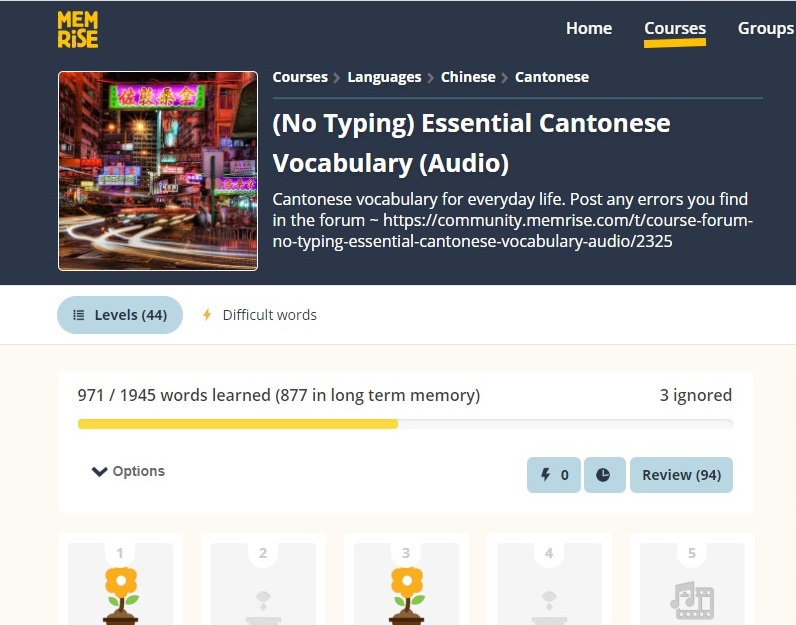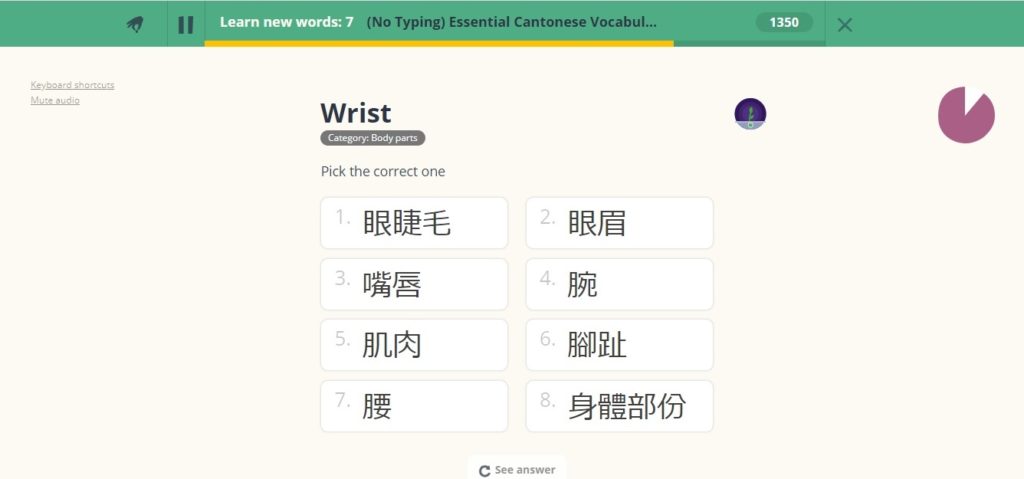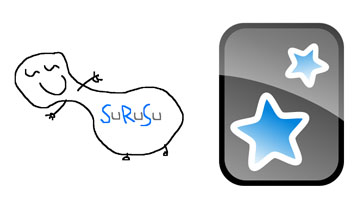Where “finished” means I did half the course, because the other half is the same sentences or words, just with the card reversed. (No Typing) Essential Cantonese Vocabulary is a fully-voiced audio course on Memrise which takes you from “Hello” to long advertising slogans and tongue-twisters which aren’t exactly essential but are fun to learn.
As a Cantonese learner who has been stuck at intermediate for years and is now trying to break through to the advanced level, what I need most is vocabulary and native-level audio and video input. While the speech in this course is a little slower and a lot clearer than what you’ll hear people on Hong Kong radio, TV and Youtube speaking, it’s still enough to be a good reference and you will hear much of the vocab being used on an everyday basis.
I’d say it’s a really good course for those on the beginner-to-intermediate level, but after that what you really need is just regular native conversation from regular native content. At the very least you should move on to natural content for children like Peppa Pig in Cantonese on Youtube (download it ASAP before it gets taken down).
However, it’s still a worthwhile experience when you’ve just reached intermediate, because you will inevitably have some gaps in your vocabulary. For example, I didn’t know all the parts of the body, I didn’t know the names of some clothing items like scarves and high heels, common food ingredients like oyster sauce and hoisin sauce, etc.
And getting more sentence practice while I was at it was a good thing as well. Memrise works by repeated words and phrases over and over again until they’re burned into your brain, so my recall of the stuff I learned is really high.
If I had to criticize the Essential Cantonese Vocabulary it would be for two things. Firstly, half the deck is wasted on repeats, so it’s really only about 900 cards instead of almost 2000 like you might first expect. And secondly there are a few mistakes that haven’t been fixed despite being pointed out ages ago, probably because the deck is no longer being maintained.
But those are just minor criticisms. If you’ve finished the usual gauntlet of basic textbooks like “Teach Yourself Cantonese” and Youtube videos and you’re still feeling a bit weak in terms of everyday vocabulary, this is a good place to fill in some gaps, refresh your memory or cement what you’ve learned into your brain.
In any case, there are very few intermediate or advanced Memrise Cantonese courses that take you past the basic level and have both Cantonese characters (not jyutping! say no to romanization once you’re past the beginner level!) and quality audio. Apart from this one, I only know of Intermediate Cantonese w Audio, mostly taken from Adamn Sheik’s Cantonese website and Cantonese through Song, now sadly abandoned.
So if you use Memrise and you’re learning Cantonese, this is one of the few options you’ve got, so have at it!
For me, my next step is to move on to native Hong Kong dramas and TV shows with Chinese subtitles, not English. I tested myself briefly with an episode of Wong Fei Hung and realized I could understand about 80% of what was happening as long as I checked the subs. For now I will work through all the Cantonese Peppa Pig episodes on YouTube while searching for Cantonese (not “written Chinese”) subtitles. I’ll share any findings I make here so fellow learners can benefit. See you in a bit~.







 Now I have to find a new source of terrible dramas and annoying tourism shows and endless mahjong tournaments and pro-Beijing news to watch. It was fun to have ATV streaming away whether I watched it or not, and I learned a ton of new characters and compounds from the news broadcasts. But it does no good to lament the past, just got to keep moving forward. I’m sure I’ll find something else eventually.
Now I have to find a new source of terrible dramas and annoying tourism shows and endless mahjong tournaments and pro-Beijing news to watch. It was fun to have ATV streaming away whether I watched it or not, and I learned a ton of new characters and compounds from the news broadcasts. But it does no good to lament the past, just got to keep moving forward. I’m sure I’ll find something else eventually.